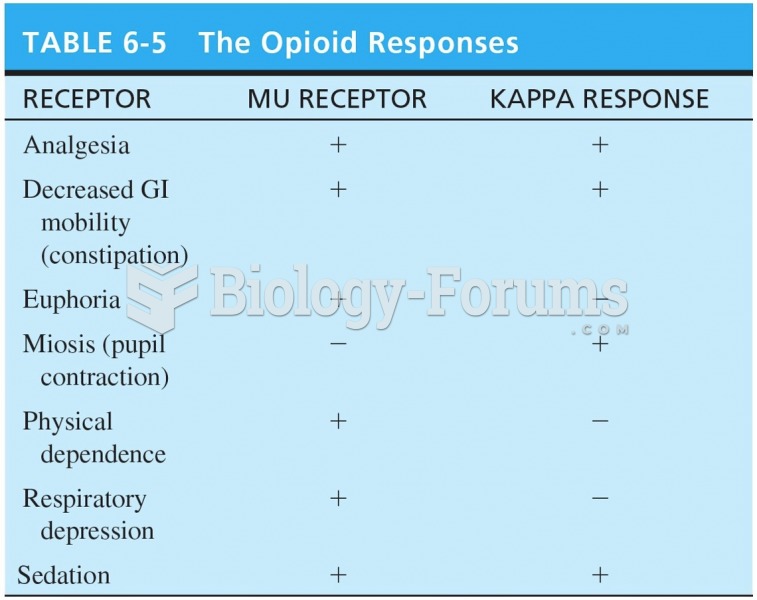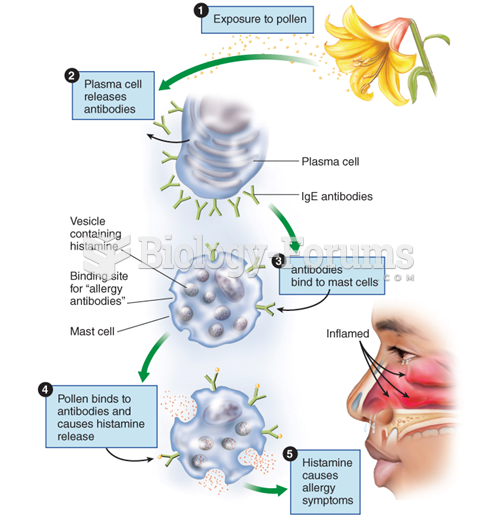Answer to Question 1
A peanut allergy is an abnormal response of the body to the proteins found in peanuts. As explained in the chapter, sometimes larger proteins can be absorbed into the blood and circulate. In the case of a peanut allergy, the larger protein that is circulating in the blood would be known as an allergen, a type of protein that the body physiologically mounts an immune response against. The immune response to a large polypeptide (protein) is known as an allergic response (this is an oversensitive immune response) and commonly called a food allergy. In Tylers case, the specific food allergy is known as a peanut allergy. When the body recognizes the allergen (peanuts and legumes) it will release histamines that cause swelling, itching, mucus production, muscle spasms, hives, rashes, and a variety of other responses that are unique to each individual. This oversensitive immune response by Tyler is known as the inflammatory response and can be quite serious and possibly fatal. An epinephrine injection is necessary to slow this over-zealous inflammatory response.
The allergen is the protein(s) in the peanut products or legumes. So, Tylers diet must provide adequate protein (including all essential amino acids) without using any of the proteins harmful to his immune system.
Answer to Question 2
1. Checking with the school cafeteria about foods with peanut products; in particular, the following list would be helpful to share with the foodservice personnel:
a. any peanut oil
b. ground or mixed nuts
c. peanuts; peanut butter; peanut flour
d. ethnic foods (due to cross-contamination)
e. baked goods; candy; chocolate (an issue at social events)
f. cereals; crackers
g. chili and spaghetti sauce (often peanut butter and/or peanut flour is used)
h. hydrolyzed plant protein; hydrolyzed vegetable protein
i. ice creams, frozen yogurts, tofutti
j. marzipan and nougat
2. Management of ones food budget at grocery stores and at restaurants.
3. A roommate could help by making sure shared dishes and kitchen and bathroom surfaces are wiped clean and always washing hands prior to handling items within the room.
4. A roommate could help with relationship concerns (kissing; hand holding; hugging).
5. A roommate needs to know where any allergy medications (such as epinephrine) are located and have access; in addition, the roommate may need to familiarize himself/herself with how to use 911 effectively with campus security so that no time is lost in case of an emergency.







